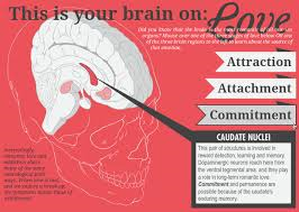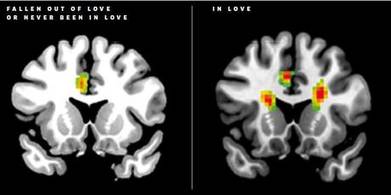 While reading the extensive report in Frontiers in Human Neuroscience about romantic love, the idea occurred to me about the many different kinds of love we experience, and could the same MRI results be captured for those experiences as well. For example, can loving one’s work or participating in a recreational or leisure time activity that we love produce the same MRI measurable result? The creative arts like writing and painting have personal rewards not necessarily based on remuneration. Writing is considered one of the most difficult creative professions; it can also be one of the most rewarding from a creative point of view. Writers are not only compelled to write, but also they love writing and seek the personal satisfaction of accomplishment and creativity. It’s its own reward. Writers can experience a state when the words and ideas flow effortlessly. During these events, the writer is truly “in love” with what they are doing. There is no sense of time—only focus on the work. Conversely when writer’s block takes over, they have “fallen out of love” with the mercurial creative force that seemed ethereal, timeless and wonderful in the love state. The interesting part of this dynamic, however, is once a high level of creativity has been experienced a writer will endeavor to reach that plateau again and again—sort of like looking for love again. Similarly, runners experience an altered state called “runners’ high,” when the brain tells them they can run forever. In the past it was thought that endorphins were responsible, but new research has shown that endorphin molecules “are unable to pass the blood-brain barrier,” said Matthew Hill, a postdoctoral fellow at Rockefeller University in New York, reported in the New York Times. A new emerging field of neuroscience indicates that an altogether-different neurochemical system within the body and brain, the endocannabinoid system, may be more responsible for that feeling. Still, the runner—like the writer—is compelled to constantly seek the highest level of brain gratification. Mapping the human brain and the broader adaptations together with the ability to measure its changing architecture is the frontier for learning about different kinds of love, not only romantic. But for now the Chinese researchers have definitely captured our imagination for developing a romantic love test. The question now is would you ask your partner to take the love test? Resources http://www.independent.co.uk/news/science/science-of-love-it-really-is-all-in-the-mind-say-experts-10108781.html# Tina Turner’s official video: https://www.youtube.com/watch?v=oGpFcHTxjZs http://journal.frontiersin.org/article/10.3389/fnhum.2015.00071/abstract http://journal.frontiersin.org/article/10.3389/fnhum.2015.00071/full http://well.blogs.nytimes.com/2011/02/16/phys-ed-what-really-causes-runners-high/?_r=0
2 Comments
Eileen
18/3/2015 03:27:42 pm
Interesting Dava
Reply
Dava Castillo
19/3/2015 02:02:53 pm
Thanks for reading and commenting Eileen.
Reply
Leave a Reply. |
Dava Castillo
is retired and lives in Clearlake, California. She has three grown
children and one grandson and a Bachelor’s degree in Health Services
Administration from St. Mary’s College in Moraga California. On the
home front Dava enjoys time with her family, reading, gardening, cooking
and sewing. Archives
November 2015
|


